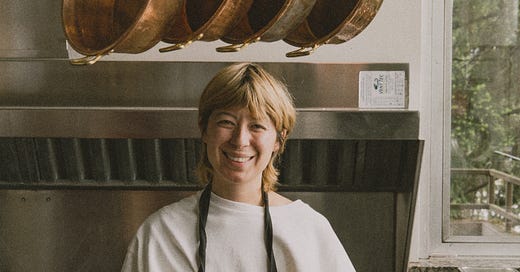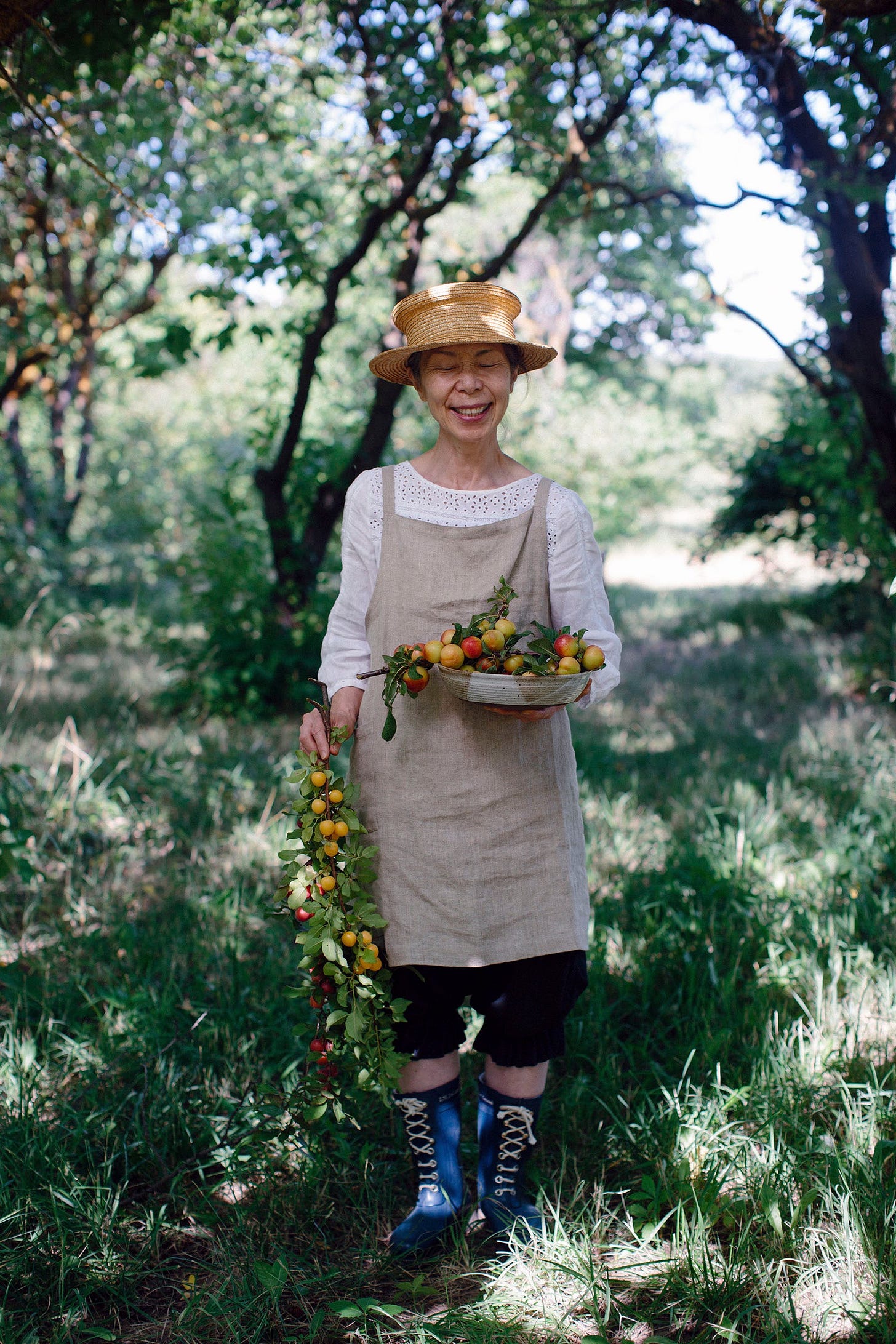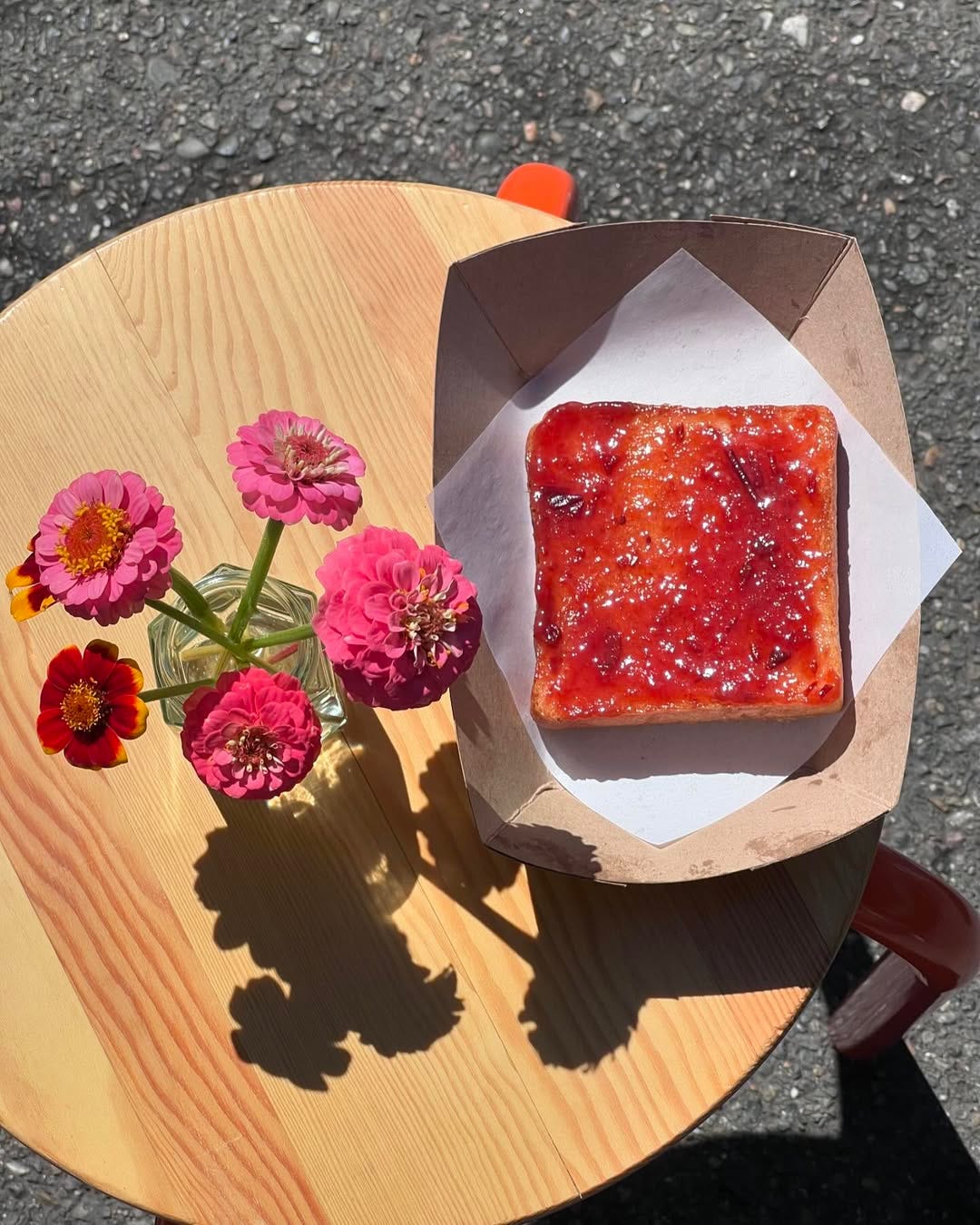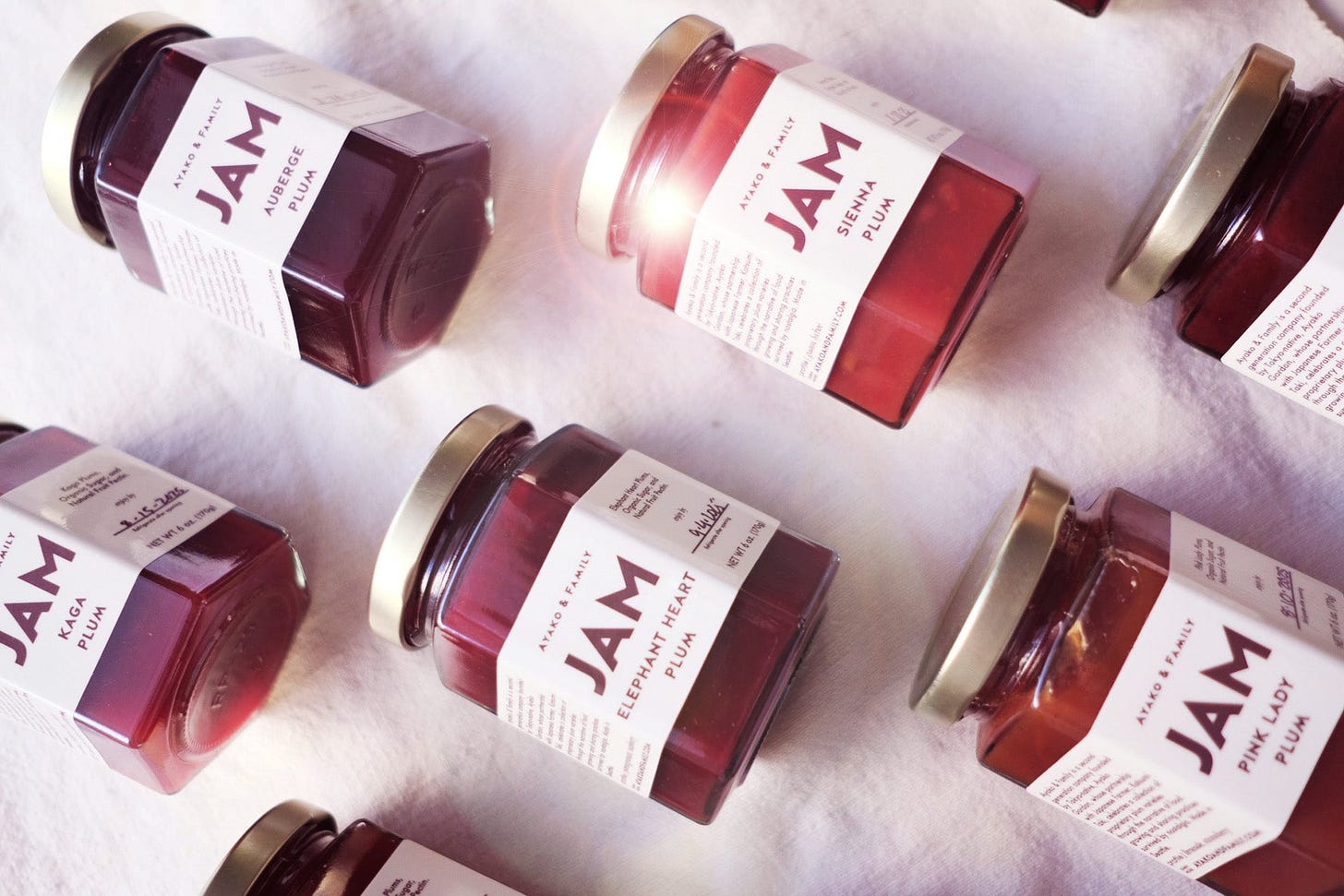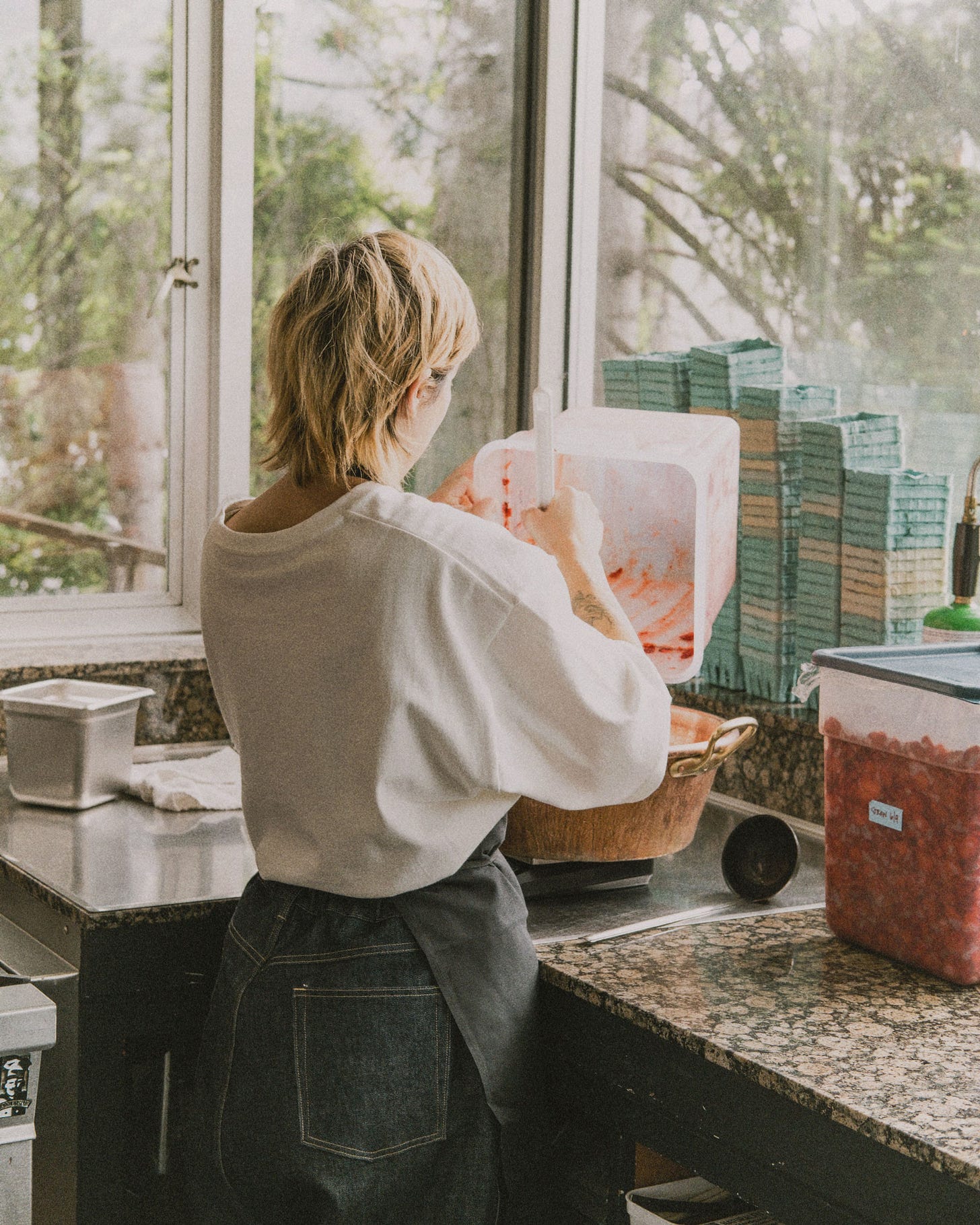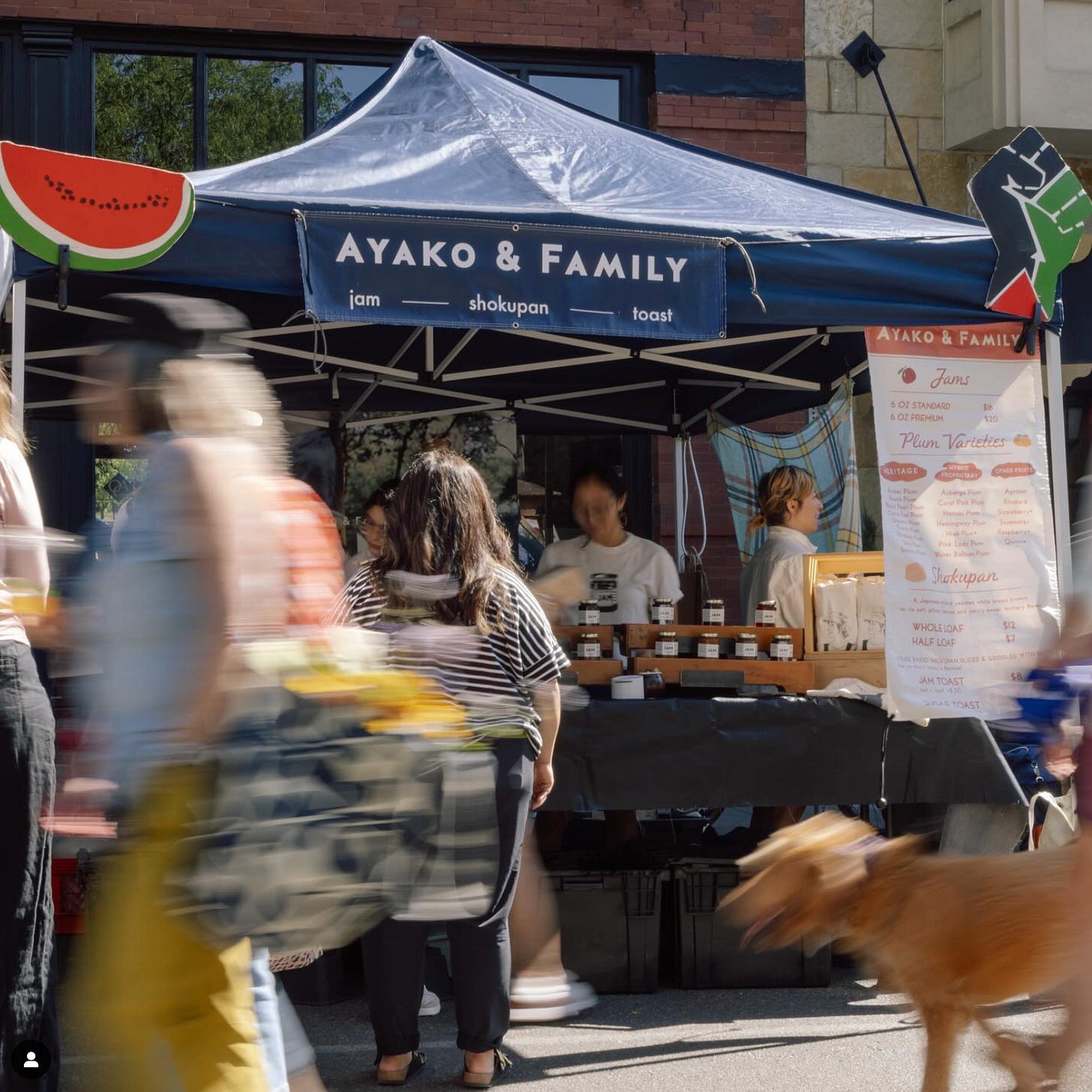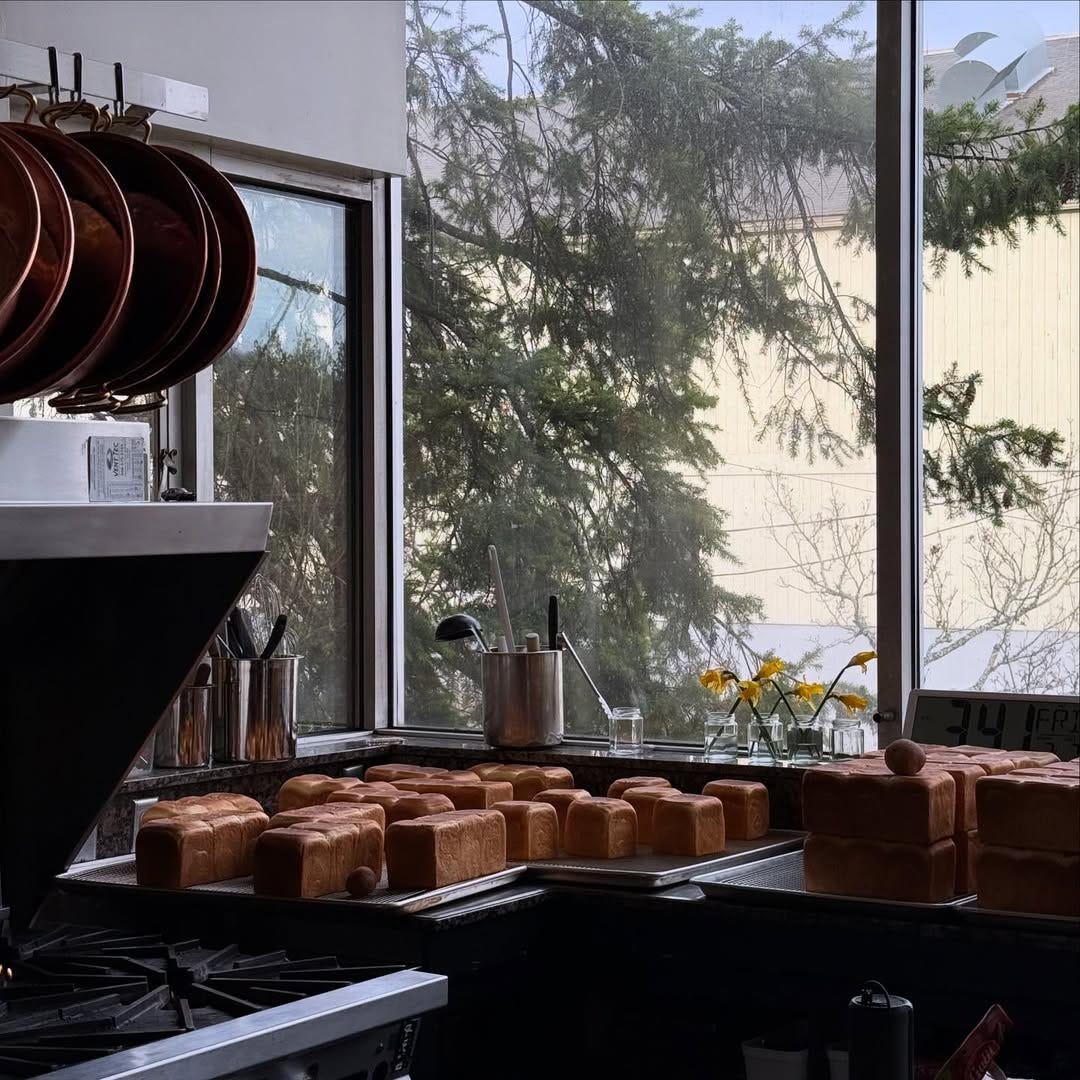Order Up! A Conversation with Sako Gordon, owner of Ayako & Family
Inside Ayako and Family’s second-generation Japanese-American jam company and bakery—and the intuitive, justice-driven work of feeding community
⏳ 6 Days Left to Sign up for #LifeSkillsNow Summer Camp!
The Kind of Independence That Matters
This free camp helps kids build true independence — the kind that comes from mastering a skill, not just keeping themselves entertained for a few hours. With topics like cooking, budgeting, gardening, and even managing big feelings, it’s like a mini life toolkit that’s easy to use (and fun).
🥔 One Potato is a reader-supported newsletter - paid subscribers have access to the full archive of Specials Interviews, Recipes, and Community Voices for $5/month or $45/year. This first interview of the month is available for ALL subscribers.
A Family Legacy: How Sako Gordon is preserving her mother’s food traditions—while queering the kitchen, centering community, and trusting the plums.
If you’ve ever wandered through a bustling farmers market — the colorful rows of fresh veggies, baskets of fragrant herbs, and the friendly chatter of neighbors catching up — you know the feeling of community that blooms there. At the Seattle Farmer’s Market, amid the kale and tomatoes, you can find the warm scent of fresh-baked bread and the sticky sweetness of jam pulling you toward something a little different. That’s where you’ll find Ayako and Family’s booth, where Sako Gordon, second-generation jam-maker and baker, offers up a slice of shokupan and a generous helping of plum jam — with a smile that says, “This is made for you.”
Based in Seattle, Ayako and Family was started in 2010 by Sako’s mother, Ayako, who immigrated from Japan and began crafting jams with fruit grown by a Yakima farmer who quickly became family. After Ayako passed in 2019, Sako stepped up to carry the business forward, weaving together her mother’s legacy with her own vision of care, community, and connection.
In our conversation, Sako opens up about how toast and jam became more than just breakfast — how they became a bridge across generations, a balm for grief, and a celebration of shared stories and homemade love. We’re honored to share this conversation with Sako at the start of Pride Month, as she proudly centers her intersectional identities in her family business, and reminds us that when queer, BIPOC, and immigrant communities are centered and made to feel safe, we all get to feel more at home.
A message from our friends at Kids Cook Real Food, hosting #LifeSkillsNow:
The Free Summer Camp That Teaches Kids More Than Just Crafts
This isn’t your average virtual camp. #LifeSkillsNow is a totally free, weeklong summer camp created by our friend Katie Kimball (founder of Kids Cook Real Food) — and it’s all about giving kids real-world confidence. Through quick, hands-on workshops, kids and teens learn to cook, budget, garden, manage emotions, and more — then complete fun “missions” to try out what they’ve learned in real life.
We love that it’s screen time with purpose — and packed with skills they’ll carry long after summer ends. Camp runs June 9–13 (only 6 days away!), but early-access content is available now.
👉 Grab your free camp pass and help your kids build confidence, one life skill at a time.
A Conversation with Alessandra Hisako “Sako” Gordon
Introduce Yourself: I'm Sako — the second-generation owner and operator of Ayako and Family, a business my mom Ayako started in 2010.
We’re entering our 15th season now, and I say “season” because we operate in tandem with the farmers’ growing seasons.
My mom started the business after connecting with a farmer in Yakima, WA, named Taki at a Seattle farmers market. They were both immigrants — she from Japan, he from Japan by way of California — and they bonded over a deep nostalgia for Japanese vegetables and food. I think both of them were searching for belonging and reinvention in a new place, and food became their way in.
She started with plum jams — and we're still known for them. At the height of the season, we’ll offer up to 15 different varieties. When I stepped in around 2017, before she passed, one of my contributions was our bread program. We now bake and sell a Japanese-style white bread called shokupan, something I grew up eating as a kid in Japan with my grandparents. At the farmers market, we serve toast and jam, which has become one of our most beloved offerings.
One thing that was really important to me when we launched toast was making sure it was accessible. I envisioned kids coming up with four or five bucks — just enough to buy their own slice. And that’s exactly what happened. It’s a beautiful thing to watch: a piece of toast, spread with jam made from fruit grown by someone I love like family — it becomes this shared, cross-generational experience. It’s not fancy, it’s not complicated. But it means something.
Can you share a food memory from your childhood that still sticks with you?
Yeah — actually, most of my earliest food memories aren’t with my mom, but with my grandparents. My mom sent me to live in Japan with them when I was three. She had two babies at home — my siblings are Irish twins, 11 months apart — and I think she wanted me to have that immersive experience in my heritage.
My grandpa used to sit on the veranda with a Kirin beer and a cigarette and a bowl of umeboshi — pickled plums — and he’d feed them to me right from his lap. I still love umeboshi. I’ll pop one in my mouth like a piece of candy, even though they’re super salty and sour. That taste — it's tied to a very specific, tender kind of memory.
And then there's the toast. My grandma used to make me a slice of shokupan in the mornings — margarine and a sprinkle of sugar on top. That was breakfast. Simple, unfussy, and full of love.
I’m a sentimental person, but I also think food shouldn’t be too precious. I like when it’s approachable. That’s part of why I wanted to share these recipes and bring the bread to the market — so people could connect over these small, deeply human food memories.
Do you ever experiment with new jam flavors or riffs on your mom’s recipes?
Honestly, not really. I’m very intentional about the jams. We’ve worked with the same farmer for 15 years — he’s like family — and I want to honor what he grows. We usually stick with single-variety jams, and I don’t do infusions. It’s about preserving the integrity of the fruit.
But I’ve experimented more with our baking program. We’ve used our bread dough to make sweet pastries, filled buns, even little cookies made from the crust ends. That’s where I let myself be a bit more playful. But with the jams, it’s about preservation — of fruit, and of history.
There’s a tension I carry as a child of immigrants, and as someone who lost her mom to what I believe was partly generational trauma. I have to ask myself: which parts of this are too precious to share, and which parts are essential to healing — for me, and for others? I want to hold space for grief and for joy, and for people to connect through that.
You talk a lot about carrying forward traditional Japanese values in your work. What does that look like in practice?
In Japan, it’s common to see food shops that have been around for 300 years. They usually specialize in one thing — and they do that thing really well. They’re not chasing growth or diversification; they’re refining, deepening, staying rooted.
That’s the approach I try to take. I want longevity. My mom’s legacy was cut short, and so part of what drives me is asking: how do I build something that lasts? Not just for me or my future kids, but for my employees — who are like family — and for our community. I want Ayako and Family to nourish people, to offer a sustainable future that lives beyond me.
You’ve mentioned that your mom didn’t really teach you to cook until later—and even then, you had to ask. So how did you end up working with her in the business? It doesn’t sound like that was expected of you?
Not at all. She started the business out of necessity—it was survival, and it was also her gift. At the time, I was working in restaurants and figuring out my place in the world—as a queer person, as a creative, just kind of moving through life in a way that didn’t always fit the mold. She needed help. And honestly, I needed her too. That was the foundation of our working together.
When she got sick, it became clear she couldn’t keep working—it just wasn’t safe. One day, she looked at me and said, “Come to the kitchen. I’ll teach you how to make jam today.” She made one batch with me, and then she said, “Okay, you’re good.” And that was it. It wasn’t romantic. It was real. She was exhausted. But feeding people was her love language, and she wanted that to continue.
She also made it clear: this isn’t about copying me exactly. There was a recipe, sure, but she always said, “You have to learn how the plums behave.” There’s no timer. You have to feel it. That’s still how we train people in our kitchen—we cook jam together, and I’ll say, “This variety cooks down like this. That one holds its shape.” There’s no way to write it all down. You have to be present with the food.
What advice would you give to parents who want to preserve and pass down their food heritage? Whether they're in multicultural households or just hoping to expose their kids to more diverse food traditions?
That’s such a good question. For me, I think there are two pieces. The first is finding ways to open up the family’s connection to food across generations. That might mean involving grandparents—or even just talking about them—if that feels safe and possible. I know family looks different for everyone, and there are absolutely times when it’s not safe or healthy to reconnect in that way. But when it is, especially in families that have emigrated or are part of the diaspora, elders can hold a lot of food memory that’s been interrupted or lost due to assimilation.
And then there’s storytelling. I think we often jump to, “Cook with your kids! Take them to the farmer’s market!” And while those are beautiful ideas, they can also be a privilege—of time, energy, access. So I think sometimes it’s just about sitting down and telling a story. Share a moment from your life when food mattered. What did you eat? Who made it? Why was it meaningful? That’s something I asked my mom to do before she passed. She wasn’t always able to physically teach me how to cook, but I’d ask her to just speak into my phone for a few minutes—tell me about a recipe or memory. We called it “dictation.”
It ended up meaning so much to me. Because recipes are never static. They evolve every time we make them. And I think that’s the beauty of passing down food memories—they don’t have to be exact. They just have to be meaningful.
Running a community-focused food business is such a labor of love. What helps you stay grounded when it gets hard?
I’m still learning. I have autoimmune issues, and I live with the reality that capitalism doesn’t leave much room for rest. But I’m lucky to be surrounded by people who hold me accountable — employees who’ve been with me for four years, friends who drop off food when I’m run down, folks who say, “Take the day off. I’ve got this.”
They help me practice what I preach. And they remind me that community care is the only way we survive this work. It's not just about making food — it's about making space for each other.
That love and the intuition you talk about—knowing the plums, trusting your instincts—it feels connected to how you’ve built Ayako and Family as a proudly queer and Japanese-owned business. How have your intersecting identities shaped the food space and community you’re creating?
In every way. My identities are central to how we move in the world. Justice is at the core of everything I do. That means centering BIPOC farmers, working with immigrant growers, and showing up for a community that’s predominantly BIPOC and queer. It doesn’t mean we’re excluding others—it just means if we can build a space where those of us who are often on the margins feel safe and seen, then it will naturally become a place where everyone feels welcome.
In Seattle, a city that’s changing fast, it’s even more urgent to create what I think of as a “third place”—a space that feels like home, that’s not work and not just commerce. And yes, I bring a political lens to the work too—because food is political. Whether it's organizing around Palestine, or learning from the Black Panthers and their food justice models, it’s all connected. I want Ayako and Family to be a place where food and justice live side by side.
This is a beautiful, broader, definition of nourishment. Not just feeding people with food, but nourishing with care, belonging, justice. To wrap things up, what’s next for Ayako and Family? What’s your hope for the future?
A physical space. That’s been my dream for a long time, and it was my mom’s dream too. We’ve built something beautiful at the markets, but having our own walls, our own kitchen—a place to gather, feed people, hold space—that would mean so much. Maybe a café, maybe a community kitchen. I just want to create a place that feels like ours. Somewhere we can continue to grow and share this legacy in a way that’s rooted and expansive at the same time.


